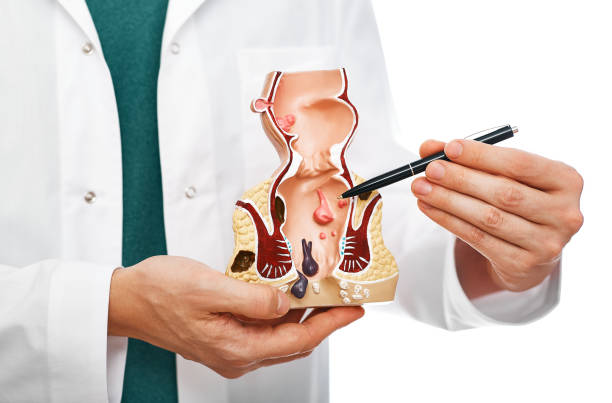Made Stress-Free Reliable Hassle-Free Convenient Pocket friendly
Request a call back
The surgery you need is
just a click away


21K +
Consultations

1180
Surgeries

100+
Partner Hospitals

10000+
Hassle-free Consultation

5000+
Smooth surgeries

500+
Expert Doctors

100+
Trusted hospitals

Laser Surgery for Fistula in Pune
Want to go through Laser Fistula surgery and have a healthy life at an affordable price with the best doctors in Pune? Get all kinds of Varicocele consultations for your surgery. Here at Aapkacare Health, we will provide the best surgeons.
Welcome to Aapkacare’s comprehensive guide on fistula surgery. In this informative article, we will explore everything you need to know about fistulas, including their signs, various treatment options, types of surgery available, the benefits of laser surgery, and preventive measures to maintain your health.
- 30 Min Procedure
- Complete Insurance Support
- Laser Treatment
- No Cost EMI
- Minimal Pain
About Fistula Surgery
Doctors & Hospitals
Why aapkacare
FAQ
What is an Anal Fistula?
A fistula is an abnormal connection or passageway between two organs or vessels within the body. In fistula surgery, we primarily focus on anorectal fistulas, which connect the anal canal to the skin near the anus.

Identify the Signs of Fistula
Common signs of anorectal fistulas include

Discharge of pus or blood from the opening near the anus.

Recurrent abscesses.

Pain and discomfort around the anal area.
Understand the Causes of Fistula
A majority of anal fistulas occur due to an infection that starts in an anal gland. This infection forms an abscess that either drains on its own or is drained surgically through the skin next to the anus
The risk factors that cause fistula include:

Previously drained anal abscess

Trauma or constant pressure to the anal area

Crohn’s disease or other inflammatory bowel diseases

Infections of the anal area from STDs

Surgery or radiation for treatment of anal cancer
Different kinds of Fistula
There could be three different types of fistula development around the anus.
- An anorectal fistula is the medical term for a fistula that develops between the anal canal and the skin around the anal entrance.
- A rectovaginal or anovaginal fistula refers to a hole that forms between the rectum or anus and the vagina.
- A fistula between the vagina and colon can develop occasionally.The term for this is colovaginal fistula.
An enteroenteric fistula occurs when a connection develops between two segments of the intestine.Sometimes a fistula can develop between the skin and the small intestine or the skin and the colon.The following are some signs of intestinal fistulas:
- Either abdominal pain or discomfort between the genitals and the anus.
- Urinary tract infections that recur.
- Severe diarrhoea or gas.
- Stomach, bladder, or intestinal gas.
- Loss of weight.
A fistula between the uterus and the bladder is also possible.The urethra and the vagina may occasionally form a hole, as well as urinary bladder and the vagina.The following are signs of urinary tract fistula:
- Discomfort while urinating.
- Frequent urination.
- Hazy and odorous urine.

When to Treat a Fistula
There are several surgical options to treat fistulas
Seton Placement
It involves placing a suture (seton) through the fistula to help it drain and heal gradually.
Fistulotomy
A procedure involves cutting the fistula open to allow it to heal from the inside out.
Advancement Flap Repair
A surgical technique where healthy tissue covers the fistula, promoting healing.
Laser Surgery
A modern, minimally invasive approach that offers numerous benefits is discussed in the next.
Prompt treatment of a fistula is crucial to prevent complications and alleviate discomfort. Delaying treatment may lead to chronic infections, increased pain, and the risk of abscess formation.
If left untreated, fistulas can worsen over time and result in severe consequences such as incontinence and the need for more complex surgeries.

Benefits of Laser Treatment
|
EXPERIENCE
|
OPEN SURGERY
|
LASER SURGERY
|
|---|---|---|
|
CUT
|
LONG
|
MINIMAL
|
|
PAIN
|
PAINFUL
|
MILD
|
|
STITCHES
|
MULTIPLE
|
MINIMAL
|
|
HOSPITAL STAY
|
LONG
|
ONE DAY DISCHARGE
|
|
RECOVERY
|
SLOW
|
FAST
|
Minimally Invasive
Laser surgery for fistulas is minimally invasive, requiring smaller incisions and resulting in less tissue damage.
Reduced Pain and Scarring
Patients undergoing laser surgery experience less pain and scarring than traditional surgical methods.
Faster Recovery
Laser surgery often allows for a quicker recovery, enabling patients to return to normal activities sooner.
When to Treat a Fistula
There are several surgical options to treat fistulas
Seton Placement
It involves placing a suture (seton) through the fistula to help it drain and heal gradually.
Fistulotomy
A procedure involves cutting the fistula open to allow it to heal from the inside out.
Advancement Flap Repair
A surgical technique where healthy tissue covers the fistula, promoting healing.
Laser Surgery
A modern, minimally invasive approach that offers numerous benefits is discussed in the next.
Prompt treatment of a fistula is crucial to prevent complications and alleviate discomfort. Delaying treatment may lead to chronic infections, increased pain, and the risk of abscess formation.
If left untreated, fistulas can worsen over time and result in severe consequences such as incontinence and the need for more complex surgeries.

Preventing Fistulas
Maintaining Good Hygiene
Regular cleaning of the anal area is essential to prevent infections that can lead to fistulas.
Dietary and Lifestyle Factors
A healthy diet and lifestyle can reduce the risk of conditions that may cause fistulas, such as Crohn’s disease or diverticulitis.
Prompt Treatment of Infections
Infections in the anal area should be treated promptly to prevent them from progressing to fistulas.
Knowledge is your greatest ally whether you are considering treatment options or seeking to prevent fistulas. For personalized advice and treatment, consult a healthcare professional or visit Aapkacare for expert guidance and support.

Laser fistula surgery
A laser is used to close the fistula, which is a minimal – pain procedure.A laser beam deteriorates the fistula ‘s abnormal lining, eliminating any infection there as well.This helps the region of the fistula to recover.Almost all anal fistula cases can be successfully treated with this fistula surgery.
Fistulotomy
Fistulotomy is the surgical procedure used most frequently to treat anal fistulas.This procedure opens the fistula and removes both the infected tissues and the entire tunnel lining(anal fistula), allowing it to heal internally.It recovers similarly to how a scar does.This treatment is relatively quick and very effective at treating fistulas.
Following an anal fistula surgery, the healing process is easy and devoid of significant problems.You won ‘t have any issues if you carefully adhere to the doctor ‘s advice. Here are some suggestions to make your healing and recovery from anal fistula surgery easier:
- Eat a diet rich in fiber
- Do not lift large objects
- Make use of a stool softener to help you have easy bowel movements
- Remain hydrated.Every day, you should consume 8 to 10 glasses of water
- Passing a stool without strain is advised
Laser fistula surgery has several advantages over conventional fistula treatments.Some of the benefits include lesser cuts, and hence minimal blood loss and pain, quicker recovery, fewer hospitalisations and much lower chances of recurrence.
Everybody has a different healing capacity, so the recovery time following anal fistula surgery may vary.
- Anal fistula open surgery recovery often lasts two to three months, while full laser fistula surgery recovery typically takes one to four weeks.
- The patient must adhere to the fistula surgeon ‘s recuperation instructions for at least one month following anal fistula surgery.
- The patient should avoid performing any actions that create stress on the fistula surgery site.
- The patient should limit their intake of fatty and spicy foods and stick to foods high in fibre.
- The patient should regularly take sitz baths and keep the surgical area free of infection.
- After two months, the patient would notice significant pain reduction from the fistula operation site.
- The scars, however, might not go away for some time.Without experiencing any significant difficulties, the patient may return to their work and eating routines.
- The patient would be pain – free following fistula surgery in three months.
- At the surgical location, there wouldn ‘t be any scars, and the incision would also be fully healed.

About our Doctors & Hospitals
all your queries.

Our Aim is to keep you healthy
Receive Expert Care
We find the finest doctors & facilities for your procedure

Zero Paperwork
We take care of all the paperwork so that you can relax

Hassle-Free Insurance
We work directly with your insurance provider for fast approvals

Get Home Sooner
Our advanced procedures help you recover faster and more safely

Are you worried about the cost of Fistula treatment?
Aapkacare Health finds you the most affordable prices for your Fistula in Pune. Even so, the exact cost is hard to pinpoint since your Fistula surgery cost depends on various factors such as age, medical history, type of surgery, etc. Call us today to get a personalised cost breakdown.

Your journey with Aapka Care Health

Avoid strenuous activity during the first week following your therapy. Take sitz baths, which means sitting in warm water for 15-20 minutes three times a day and after each bowel movement during the first few days. If you were given one, apply a topical ointment to the anal surface and a small amount to the anal canal 2-3 times each day.
- Intersphincteric fistula.
- Transphincteric fistula.
- Suprasphincteric fistula.
- Extrasphincteric fistula.
The most effective treatment for fistula is laser fistula surgery. Its benefits include minimal pain & blood loss, quicker recovery, and lower chances of recurrence.
The most frequent cause of an anal fistula is an anal abscess, a painful, pus-filled, infected hollow. Anal abscesses continually leak and produce new ones. If left untreated for a prolonged period of time, fistula can result in major complications such as infection, and incontinence.
If you are struggling with,
- Discomfort while being seated or using the restroom.
- Having discomfort during bowel movement, swelling in the anal area, pus coming out of anal region.
Laser surgery is used to treat fistulas permanently. Benefits of laser fistula surgery include minimal pain & blood loss, quicker recovery, and lower chances of recurrence.
The best doctor for you to see is either a general surgeon or a proctologist.
Fistula causes chronic pain, made worse when passing stools. They may also lead to recurrent infections and abscess formation. In addition, if they are not treated on time, they could damage the sphincter muscles leading to incontinence.
Abscesses that cause pain and swelling in the anal region, Pus that smells bad, coming from an orifice near the anus, Irritation of the anus’s surrounding skin caused by pus, Stools- pain while passing and covered in blood, Fever and chills are symptoms of infection.
Surgery has to be done for fistula as it does not go away on its own. Depending on the severity of the condition, your doctor may recommend a fistulotomy (where the tract between the two organs is cut to separate them) or a fistulectomy (where the entire fistula is removed). Recently, laser surgery has been used to deal with fissures and fistulae. They speed up the recovery time, cause minimal blood loss and cause the least harm to the sphincter or surrounding organs.
You can resume your daily activities one to two weeks after the fistula operation, but it is recommended that you do not lift anything heavy and avoid activities that could induce straining during that time. You may be advised stool softeners till the area around the anal sphincter heals so that it doesn’t hurt or bleed while passing stool.
MRI and fistulogram are the tests necessary for the treatment of fistula.
Proctologists, often known as colorectal surgeons, are the best medical professionals to treat fistulas. He focuses on the diagnosis and treatment of issues with the colon, rectum, and anus.
For most patients, effective fistula surgery has a minimal recurrence rate.
One to two weeks after fistula surgery, the majority of patients can resume their daily routine and employment. Your fistula generally won’t heal entirely for a few weeks to a few months. This depends on the size of your fistula and the extent of your fistula operation.
No, Aapkacare Health is only a platform provider. It does not own any hospital. Aapkacare Health works in partnership with other hospitals. It uses doctors and surgeons from the hospitals or independent qualified surgeons to perform the surgeries, leveraging the medical infrastructure of the partnered hospitals.



